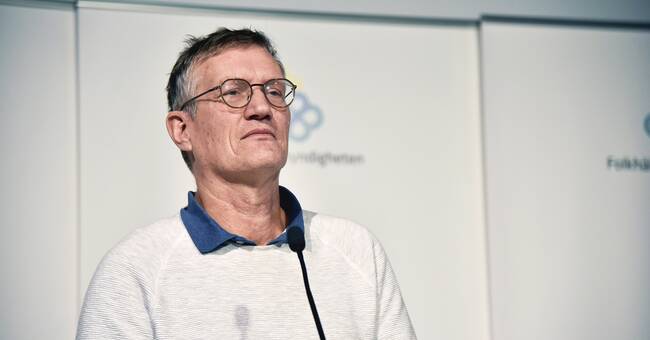Skåne and Västra Götaland want to start vaccinating healthcare professionals, in parallel with the highest priority group in elderly care and in nursing homes.
Thus, the regions would deviate from the Public Health Agency's priorities.
But no such dialogue has yet been conducted with the Public Health Agency, says Anders Tegnell.
- We have not been clear about what the real purpose of vaccinating the staff is.
It is important to be clear about what the vaccine can and cannot do, he says.
Maybe not protect
As an example, he mentions that we do not know if the vaccine really protects staff from passing on the infection.
- The studies that exist so far show that the vaccine protects against serious illness and death.
However, there is nothing in the studies that ensures that you do not become contagious.
It is at least theoretically possible that you can still be contagious even if you do not get very ill.
The Swedish Public Health Agency is open to a change in the order of priority.
But then a deeper dialogue is required, so that it does not become different across the country, says Tegnell.
- It is quite possible that it is the right way to go, but we do not have that basis with us yet to make that assessment.
Discussed next week
The issue will be discussed with, among others, the Medical Products Agency and Sweden's municipalities and regions on Monday next week, when the national pandemic group meets.
- Then we will have an in-depth discussion to see if it is the right time to change the priority and if it then really solves the problems that care has right now, says Tegnell.
According to the Swedish Public Health Agency's current priority, healthcare staff must be vaccinated only in the second phase, together with people over the age of 70.
First, staff in elderly care and people living in nursing homes and in households with home care are vaccinated.
- The order of priority has been developed with many people involved, and is very much based on the ethical platform they have in healthcare, which is about those who have the greatest need having access to the treatment they need, says Tegnell.

